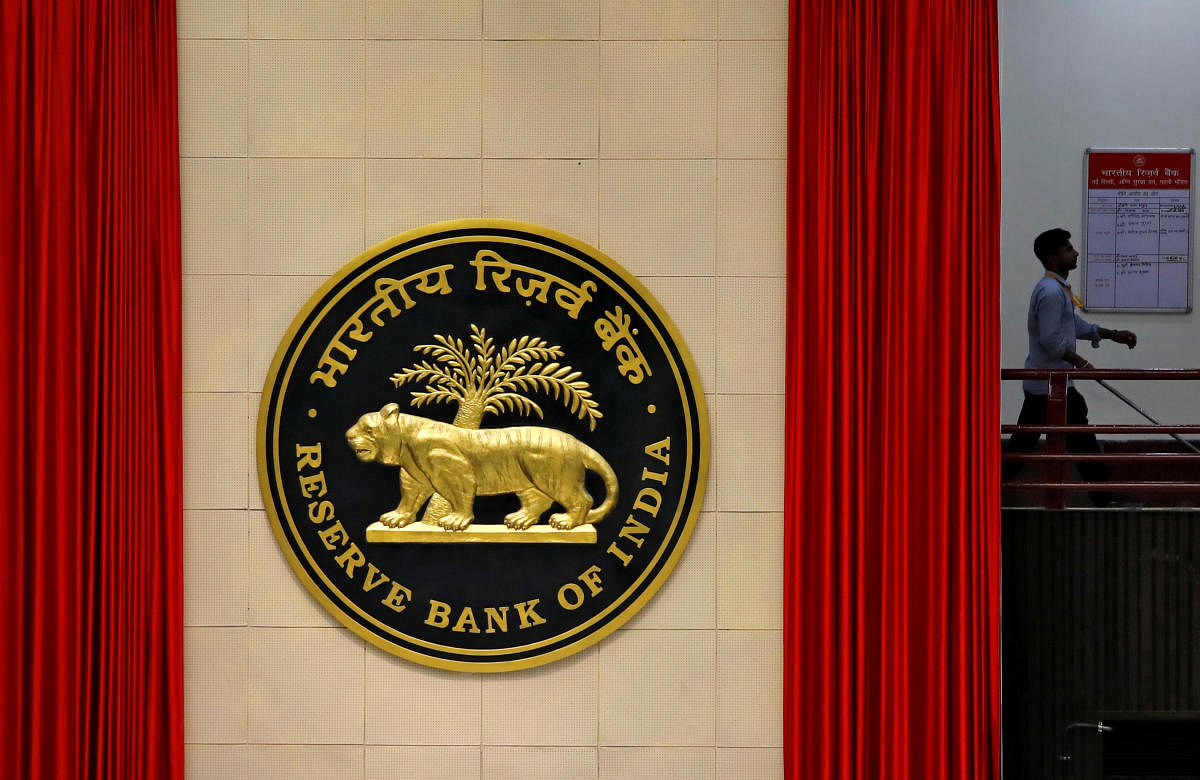Bankers on Friday said the 40 basis points reduction in repo rate by the Reserve Bank of India will give a big support to the sagging economy.
The RBI on Friday reduced the repo rate by 40 basis points to 4 per cent, the lowest since it came into being in 2000.
The central bank also announced a slew of measures, including extension of moratorium on loan repayments by another three months and increasing bank exposure to corporates to 30 per cent of the group's net worth from the current limit of 25 per cent.
"The RBI policy announcement in response to the fallout of COVID-19 pandemic is timely. The reduction in policy rate by 40 bps under the assumption that growth in FY21 will be negative is an appropriate move to support economic activity," State Bank of India (SBI) Chairman Rajnish Kumar said.
RBI Governor Shaktikanta Das said given the uncertainties, GDP growth in 2020-21 is estimated to remain in the negative territory, with some pick-up from the second half of the current fiscal.
"The RBI continued with its extraordinary commitment in its fight against COVID-19. The latest round of rate cuts, moratorium extension, deferment of interest on working capital facilities and relaxation in asset classification will provide the requisite balm to the economy," Standard Chartered Bank India CEO Zarin Daruwala said.
RBI extended the three-month moratorium on loan repayments from June 1 to August 31, 2020.
"It was a good decision. There was a requirement of extension of moratorium since the lockdown has not been lifted 100 per cent," Central Bank of India Managing Director and CEO Pallav Mohapatra said.
RBI permitted to convert the accumulated interest on working capital facilities over the deferment period up to August 31 into a funded interest term loan which will be repayable not later than the end of the current financial year.
"Conversion of interest on working capital loans for the moratorium period into funded interest term loan (FITL) will give a breather to the borrowers," Indian Bank's Managing Director and CEO Padmaja Chunduru said.
The time period for repayment of that component could have been longer than just seven months, she added.
According to Bank of Baroda's Chief Economist Sameer Narang, RBI has room for another 25 basis points reduction in policy rate as GDP is likely to contract by 4.7 per cent in FY21 with CPI inflation at 3.5 per cent.
Yes Bank's Senior Economist Vivek Kumar said there could be further support from RBI in the form of another 50 basis points cut in the repo rate amid widening of negative output gap and assertion of disinflationary pressures.
"We also expect RBI to come up with a large scale bond purchase program (via OMOs) covering both g-secs and SDLs to lower elevated term premium and credit spreads in the economy," he said.
Harsh Shrivastava, chief executive officer of Microfinance Institutions Network, said, "MFIN and its members will be happy to extend moratorium to those customers who need it the most while welcoming clients who are able to pay if they have cash flow."
Religare Finvest President and Head (Corporate Planning and Strategy) Pankaj Sharma said extension of loan moratorium and permission to convert accrued interest on the moratorium into a funded interest term loan to be paid during the tenure of the loan will ease the pressure on the lending entities, especially NBFCs.
"The group exposure limit enhancement for banks will help channelize the credit flow to the NBFC sector. The 3 month extension of the moratorium relief was expected due to the extended lockdown of COVID-19," Tata Capital Managing Director and CEO Rajiv Sabharwal said.
Clix Capital CEO Bhavesh Gupta said for banks and NBFCs, moratorium may lead to an increase in NPAs in the long term and it would have been better had RBI also announced directions on one-time restructuring of loans and other support measures.
